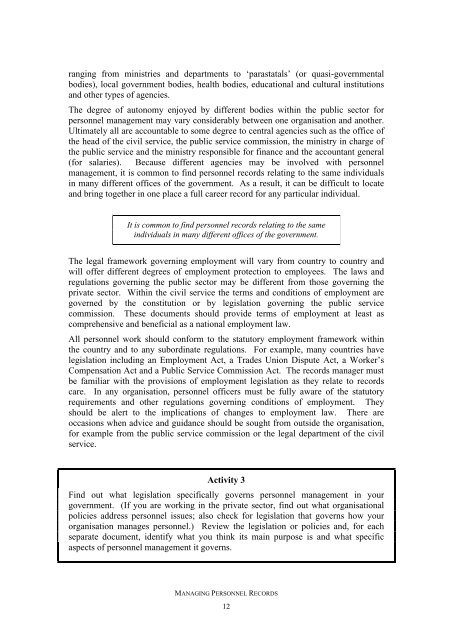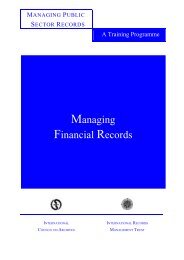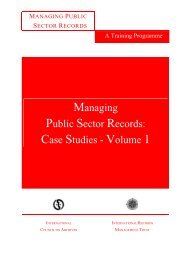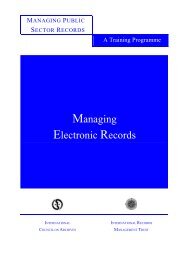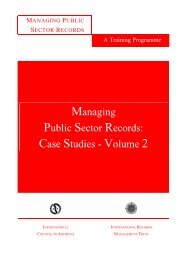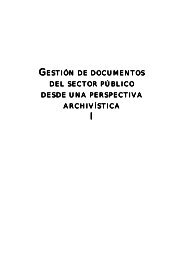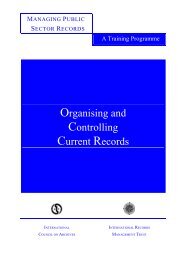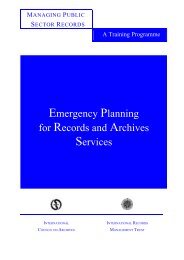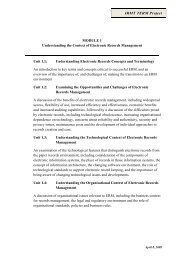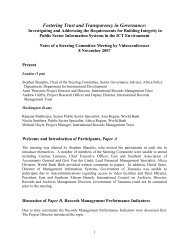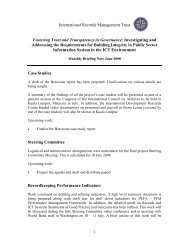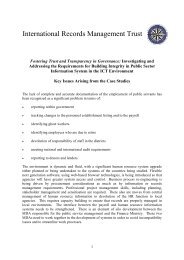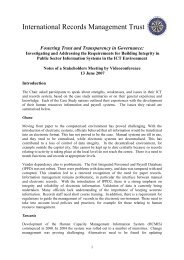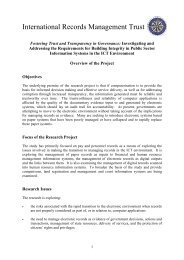Managing Personnel Records - International Records Management ...
Managing Personnel Records - International Records Management ...
Managing Personnel Records - International Records Management ...
You also want an ePaper? Increase the reach of your titles
YUMPU automatically turns print PDFs into web optimized ePapers that Google loves.
anging from ministries and departments to ‘parastatals’ (or quasi-governmental<br />
bodies), local government bodies, health bodies, educational and cultural institutions<br />
and other types of agencies.<br />
The degree of autonomy enjoyed by different bodies within the public sector for<br />
personnel management may vary considerably between one organisation and another.<br />
Ultimately all are accountable to some degree to central agencies such as the office of<br />
the head of the civil service, the public service commission, the ministry in charge of<br />
the public service and the ministry responsible for finance and the accountant general<br />
(for salaries). Because different agencies may be involved with personnel<br />
management, it is common to find personnel records relating to the same individuals<br />
in many different offices of the government. As a result, it can be difficult to locate<br />
and bring together in one place a full career record for any particular individual.<br />
It is common to find personnel records relating to the same<br />
individuals in many different offices of the government.<br />
The legal framework governing employment will vary from country to country and<br />
will offer different degrees of employment protection to employees. The laws and<br />
regulations governing the public sector may be different from those governing the<br />
private sector. Within the civil service the terms and conditions of employment are<br />
governed by the constitution or by legislation governing the public service<br />
commission. These documents should provide terms of employment at least as<br />
comprehensive and beneficial as a national employment law.<br />
All personnel work should conform to the statutory employment framework within<br />
the country and to any subordinate regulations. For example, many countries have<br />
legislation including an Employment Act, a Trades Union Dispute Act, a Worker’s<br />
Compensation Act and a Public Service Commission Act. The records manager must<br />
be familiar with the provisions of employment legislation as they relate to records<br />
care. In any organisation, personnel officers must be fully aware of the statutory<br />
requirements and other regulations governing conditions of employment. They<br />
should be alert to the implications of changes to employment law. There are<br />
occasions when advice and guidance should be sought from outside the organisation,<br />
for example from the public service commission or the legal department of the civil<br />
service.<br />
Activity 3<br />
Find out what legislation specifically governs personnel management in your<br />
government. (If you are working in the private sector, find out what organisational<br />
policies address personnel issues; also check for legislation that governs how your<br />
organisation manages personnel.) Review the legislation or policies and, for each<br />
separate document, identify what you think its main purpose is and what specific<br />
aspects of personnel management it governs.<br />
MANAGING PERSONNEL RECORDS<br />
12


